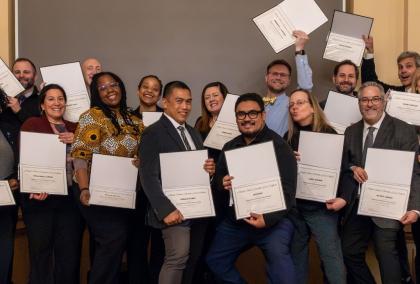In Finland the guiding principle in public libraries is to offer free access to cultural and information sources for all, irrespective of their place of residence and financial standing. The use of library collections at the library and borrowing are free of charge.
Both municipal and research libraries are open to all. Students use public and research libraries side by side. The Finnish library network comprises municipal public libraries, school libraries and research libraries.
Municipal Public Libraries
Every Finnish municipality has a public library, and most also have branch libraries and library cars.
The municipal libraries usually contain English-language books, newspapers, CDs and DVDs which can be borrowed at no cost. You can search for public libraries in your town online.
School Libraries
Schools and other educational institutions provide library and information services to their pupils and students. In this, they cooperate with public and other libraries.
Research Libraries
Research libraries, comprising university, polytechnic and special libraries, serve higher education, learning and research. All university libraries provide self-service photocopying at moderate prices.
The nucleus of research libraries is:
University libraries offer free access to everyone, not only university students and staff. Universities of applied sciences have their own libraries and information services. Teaching-related information services are provided and financed by the local education authority.
The National Library of Finland is the oldest and largest scholarly library in Finland as well as one of the largest independent institutes at the University of Helsinki. It is responsible for the collection, description, preservation and accessibility of Finland’s printed national heritage and the unique collections under its care. The National Library also serves as a national service and development center for the library sector and promotes national and international cooperation in the field.
In addition to university and city libraries, there are numerous other collections that may prove invaluable for your research, such as the libraries of the World Institute for Development Economics Research (WIDER) Institute in Helsinki, and the Finnish Broadcasting Company (YLE, short for Yleisradio).
Learn more about Finnish libraries
Library Card
You need a library card to borrow books or other materials. The card is free of charge, and you and your family members can apply for one in any library in your municipality. You will need to show a photo ID when applying for the card.
Remember to return your book-loans to the libraries before your departure from Finland.
Please note that the Fulbright Finland Foundation is not responsible for the payment of fines or legal procedures against you as a result of the loss or non-return of library materials.
Other library and reading related information
Finna:
You can find the treasures of Finnish archives, libraries and museums with a single search. Finna provides access to the collections and services of archives, libraries and museums. Users can easily access images of museum objects and works of art, digital documents, books, maps and reference data whenever it suits them.
English-Language Reading Materials
English books, newspapers, and periodicals are available from bookstores and kiosks, or by subscription. The International Herald Tribune (using news services of the New York Times and the Washington Post), USA Today, the Wall Street Journal European edition, and other newspapers are sold in some train stations, bookstores, and kiosks in larger cities.
Books are expensive in Finland. Printing limited-run Finnish-language editions is costly, and all foreign books are taxed upon import. If you know you will need certain books, either bring them along or have them mailed. Even books that need to be ordered after you arrive will come more quickly and cheaply if you buy them through a contact in the United States.
Check Also
- Library at the Arktikum in Rovaniemi
- Library of Parliament
- Helsinki University Slavonic Library (holds one of the best collections of pre-revolutionary Russian materials)
- Different museum and institute libraries
There are good interlibrary loan services among the various collections.


